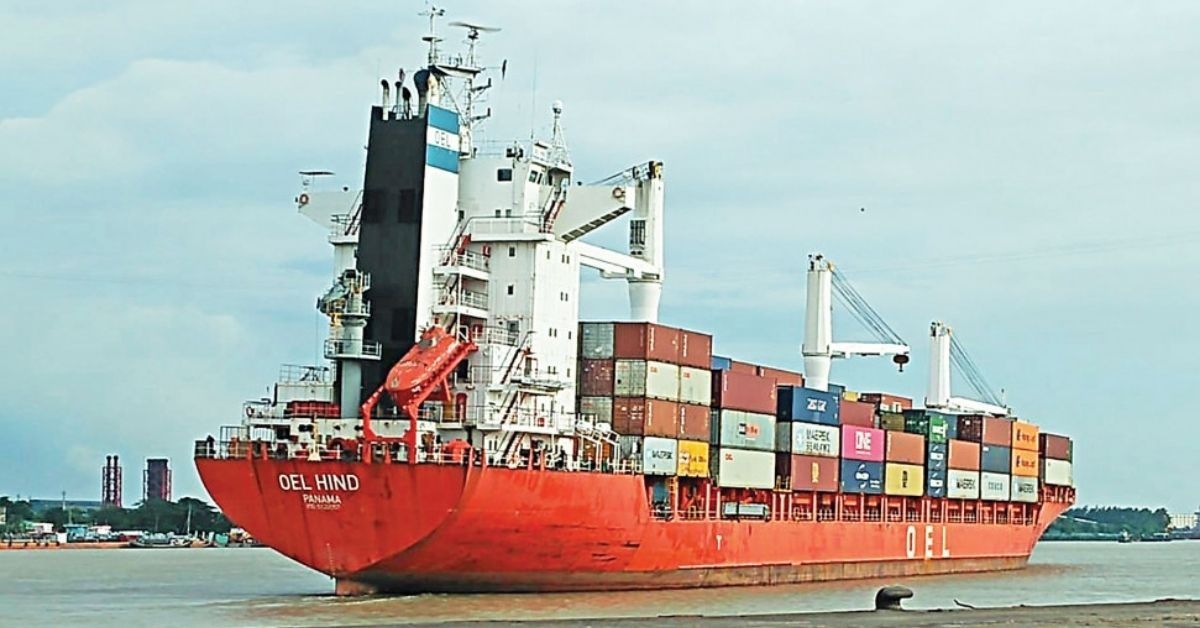Shipping lines in Bangladesh have expressed concern over some provisions in the recently published policy for private inland container depots (ICDs), citing that certain measures may cause adversities in running operations.
The National Board of Revenue (NBR) issued a gazette on the “Private Inland Container Depot and Container Freight Station Policy-2021” on December 19 last year, setting guidelines for the establishment and operation of private ICDs.
The Bangladesh Container Shipping Association (BCSA), a group of major shipping lines working in the country, expressed its concern over the new policy through a letter to the NBR issued yesterday.
BCSA members include the local agents and branch offices of numerous global shipping lines, including Maersk Line, CMA CGM, Hapag Lloyd, Orient Overseas Container Line (OOCL), Cosco Shipping, Samudera Shipping Line, Mediterranean Shipping Company (MSC), Ocean Network Express (One), and HMM.
In the letter, Captain AS Chowdhury, general secretary of the BCSA, said the provision for consignees and shippers to stipulate the names of ICDs as the “port of delivery” or “port of shipment” in letters of credit (LCs) and bills of lading (BLs) would have wide-ranging implications on the shipping process.
According to the NBR policy, importers and exporters need to state an ICD’s name in the LC or BL respectively if they intend to take import delivery or stuff export cargo at the ICDs.
Mentioning that in case of imports, this would mean the carrier responsibility would end at the ICD while for exports the carrier would start handling containers from the ICDs, the BCSA opined that the inland haulage charge that was once the merchant charge would turn into shipping lines’ charge.
This would require the shipping lines to update their freight charges to and from Bangladesh as well as their corresponding contracts with customers, it stated.
Currently, shipping lines have individual commercial contracts with their choice of ICDs.
Chowdhury in the letter said the new provision would require shipping lines or main line operators (MLOs) to have contracts with all ICDs.
This would create problems for the shipping lines to reposition their empty containers as per the exporters’ choice of ICDs as containers would be dispersed across all the ICDs for import delivery.
More importantly, to implement this provision shipping lines’ systems need to be updated worldwide to facilitate the selection of individual ICDs from any given place of origin from any part of the world, he said.
“Updating these systems is not an easy undertaking as it would require a considerable amount of investment and time from shipping lines,” the BCSA said in its letter.
Against this backdrop, the association urged the NBR not to impose the provision.
The association also expressed concern over how the new policy does not have any specifics on the much talked about “tariff committee”, allowing ICD owners to fix charges on their own accord.
The tariff committee, as stipulated in the Shipping Ministry’s ICD Policy formulated in 2016, was a means of relief for the trade, it said.
The ICD Policy-2016 directed that a tariff committee comprising prescribed representatives needs to be formed to fix the charges of ICDs.
An official of a shipping agent said that in November last year, some ICD owners increased their charges by 23 per cent based on the hike in diesel prices even though there were some items on which the increased prices should not have had any impact.
The BCSA also opposed the provision that prohibited the use of ICDs for handling Less-than-Container Load (LCL) import containers.
Mentioning that it is a common occurrence for import-export activities to exceed the storage capacity of Chittagong Port due to delays in container delivery, the BCSA stated that arrangements need to be made to handle LCL cargoes outside the port in order to keep enough free space inside.
The association opined that shipping lines, the most important stakeholders of the ICDs, should be given an opportunity to share their thoughts on the draft policy during the formulation.
As such, it urged the NBR to address and resolve these issues in the best interest of the country’s import and export activities.
Source : The Dailystar







